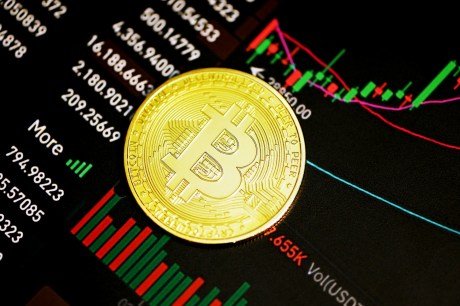Is there any connection between the political strife in Italy and the slight recovery in the price of Bitcoin? One journalist thinks that ‘Italexit’ may have been the catalyst that brought Bitcoin back over $7,500.
‘Italeave’ May Have Contributed to Bitcoin Gains
March 4 elections in Italy which resulted in a hung parliament have created an economic crisis marked by money fleeing the country to US and German bonds. The country’s stock prices have dropped as rumors of an ‘Italexit’ or ‘Italeave’ have spread, referring to the Brexit movement that saw Great Britain pull out of the European Market.
Italian banks are highly indebted and a downgrade in Italy’s debt rating could cause a panic that might cause citizens to pull their money out of banks the way Greeks did in 2015. All of this has led to drops in both global stock prices and the Euro, but one journalist is also suggesting it has had the opposite effect on the cryptocurrency market.
Each of the top three cryptocurrencies experienced slight gains in the last 24 hours as Bitcoin (BTC/USD) jumped above $7,500, Ethereum (ETH/USD) reached a peak above $573, and Ripple (XRP/USD) topped $0.60.
Yohay Elam writing for FXSTREET has examined the correlation between the crisis in Italy and the slight recovery of Bitcoin in its aftermath. He offers a simplified chronology of events; first came the political turmoil which resulted in the sell-off of Italian bonds, then the Euro and global stocks. Soon after money is flowing into crypto, not immediately he wrote but the timeline is telling.
Bitcoin Used as a Hedge Against the Euro
This argument may be augmented when considering the nature of cryptocurrency as a decentralized form of currency. The political crisis began with the Italian President rejecting a government elected by the people in a country at the heart of modern democratized Europe. This can be construed by the people as the establishment rejecting the will of its people and forcing a puppet regime onto them.
Bitcoin and cryptocurrency as decentralized currencies take power away from the establishment’s financial systems, so the shift could represent a rash of protest investment. As Elam writes in his article “When the establishment is in crisis, alternatives are sought after.” It also may be that Bitcoin is being used as a hedge against the deflating Euro he added.
The journalist also looked at the possibility that there is no connection. That gains in the cryptocurrency market are an anticipation of the expected influx of institutional money following Goldman Sachs foray into Bitcoin futures and that a June recovery has been predicted by Bitcoin bulls all through the early months of 2018.
Image from Shutterstock



















